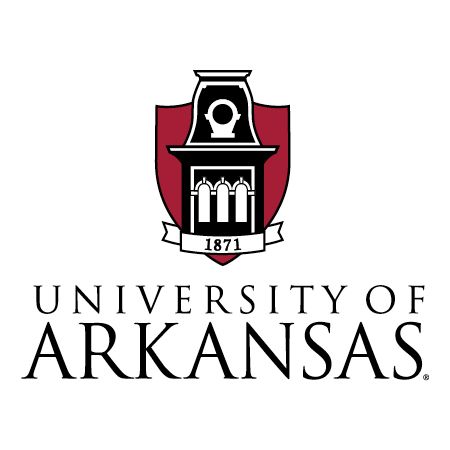U of A Posts Record Graduation Rates
FAYETTEVILLE, Ark. – The group of students who entered the University of Arkansas in the fall of 2010 as first-time freshmen has set graduation rate records – records that university faculty and administrators hope will be broken in the coming years.
The 2010 “cohort” had a six-year graduation rate of 64.5 percent – a two-point increase over the previous group, and up more than four points from the 2006 cohort. Just as impressive, the 2010 cohort had a four-year graduation rate of 42.3 percent and a five-year rate of 60.6 percent – all records since the university began tracking these numbers.
Higher education officials and ratings services use the six-year graduation rate as an indication of the quality of a college or university.
“The university identified the graduation rate as a problem several years ago – and a problem we could correct,” said Chancellor Joe Steinmetz. “We began putting programs and student services in place to help students achieve their academic goals, and obviously these are paying off. This is a work in progress, however, and these rates can be, and need to be, much higher. Advancing student success is the first of our guiding priorities, additional efforts are underway and I expect to see major improvements in the future.”
As a further sign that the campus efforts are working, the students who entered in the fall of 2012 have a 47.1 percent four-year graduation rate – almost five points higher than the 2010 cohort. This could indicate that their six-year graduation rate will set another new record.
Many factors appear to contribute to the increased six-year graduation rate. For example, living on campus:
- 66.8 percent graduation rate for students who lived in University Housing for at least their freshman year
- 47.6 percent graduation rate for those who lived off-campus their freshman year
This is a major reason Chancellor Steinmetz is asking the UA Board of Trustees to approve construction of two new residence halls.
Another important factor is financial aid:
- 71.2 percent of students who did not need financial aid graduated within 6 years
- 45.7 percent of students with the most need-based financial aid graduated within 6 years
“The cost of attending the U of A has a major impact on our lower income students,” said Steinmetz. “This is why getting more need-based scholarships is a prime goal of Campaign Arkansas. We want to be sure all of our qualified students receive the support they deserve to help them graduate.”
The six-year graduation rate is also up significantly for each college:
- 67.8 percent in the Bumpers College of Agricultural, Food and Life Sciences, compared to 59.8 percent for the 2007 cohort
- 67 percent in the Fay Jones School of Architecture and Design, compared to 59.8 percent for the 2007 cohort
- 66.5 percent in the Sam M. Walton College of Business, compared to 64.7 percent for the 2007 cohort
- 65.3 percent for the College of Engineering, compared to 63 percent for the 2007 cohort
- 63.3 percent in the J. William Fulbright College of Arts and Sciences, compared to 58.5 percent for the 2007 cohort
- 62.3 percent in the College of Education and Health Professions, compared to 53.8 percent for the 2007 cohort
Updated information on graduation and retention rates is available at the Office of Institutional Research and Assessment website.
About the University of Arkansas: The University of Arkansas provides an internationally competitive education for undergraduate and graduate students in more than 200 academic programs. The university contributes new knowledge, economic development, basic and applied research, and creative activity while also providing service to academic and professional disciplines. The Carnegie Foundation classifies the University of Arkansas among only 2 percent of universities in America that have the highest level of research activity. U.S. News & World Report ranks the University of Arkansas among its top American public research universities. Founded in 1871, the University of Arkansas comprises 10 colleges and schools and maintains a low student-to-faculty ratio that promotes personal attention and close mentoring.
Contacts
Gary Gunderman, executive director
Institutional Research and Assessment
479-575-4652,
ggunderm@uark.edu
Steve Voorhies, manager of media relations
University Relations
479-575-3583,
voorhies@uark.edu
Headlines
U of A's Inspirational Chorale Makes Its Carnegie Hall Debut
The U of A's Inspirational Chorale took center stage at Carnegie Hall in March, performing under the direction of professor Jeffrey Murdock to a packed audience at the iconic Stern Auditorium.
The State of Economics With Mervin Jebaraj Set for June 5
U of A economist Mervin Jebaraj will analyze state's economic trends and regional issues in an upcoming talk. Preregistration is required by May 31.
Faculty Demonstrate Dedication to Student Success Through Teaching Credentials
Eight faculty members from across the U of A have earned the prestigious Association of College and University Educators certification in Effective College Teaching.
Artificial Intelligence, Machine Learning Boost Arkansas Animal Science Research
Aranyak Goswami, a bioinformatics specialist, will work with three different departments to boost the research arm of the U of A System Division of Agriculture.
College of Education and Health Professions Doctoral Student Picked for Grosvenor Fellowship
Jessica Culver, a doctoral student in the College of Education and Health Professions Adult and Lifelong Learning program, has been selected as a member of the 2024 Grosvenor Teacher Fellowship.





